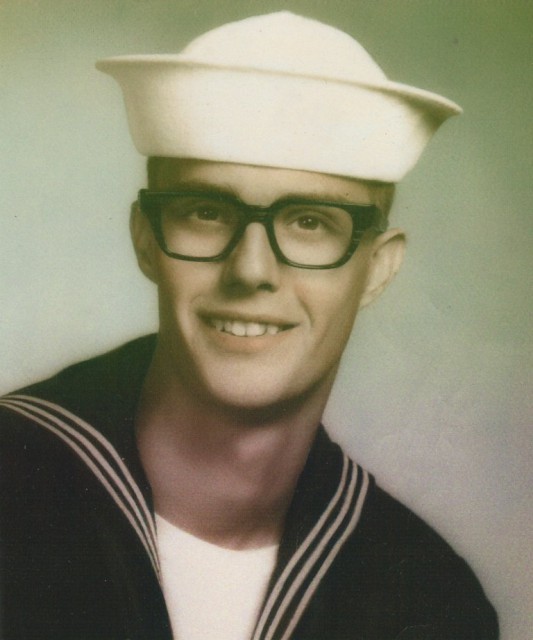Veteran describes service in the Navy during Vietnam War
By Jeremy P. Amick
The late 1960s was distressing for many young men preparing to leave high school; it was time when the net of the Vietnam draft hung above their heads, threatening to thrust them into the middle of an unpopular war thousands of miles from home.

Those not attending college and therefore ineligible for a deferment had a difficult decision to make, such as Russellville, Mo., veteran Don Steck, who chose to enlist in the Navy to make the best of an unsavory situation. “I knew the draft was inevitable,” said Steck, 64, a 1968 graduate of Jefferson City (Mo.) High School. His first stop was San Diego in July 1968, spending the next several weeks in boot camp. The young recruit then received his first naval assignment to the USS Mt. McKinley.
Upon arrival, Steck was classified as “undesignated” (not being assigned in a specific career field); however, an appraisal of his interests by the chief engineer soon landed him as a machinist mate in the ship’s main control area. “We went underway on January 3, 1969, bound for the Philippines,” Steck said. “The McKinley was a flagship, meaning we carried a rear admiral. It was an old Liberty Class ship (from World War II) and was very slow; it took us eight days to get to Pearl Harbor. “
The ship’s journey later carreid it to the waters near Da Nang, Vietnam, where many of the crew received an unexpected indoctrination to the horrors of war. “Our first day in harbor, we looked over the starboard side and there was the body of an American pilot floating in the water,” Steck recalled. “I was only 18 years old and suddenly realized this war was serious business.”

The ship patrolled the coastal areas near Vietnam for the next nine months, and with an admiral aboard, the crew was able to enjoy activities not often granted to those serving on other vessels. During one such occasion, the admiral permitted the crew recreation time on a beach near Da Nang, where they could enjoy barbecuing and swimming. Safety, however, was a concern even in war’s most relaxed environments as Steck soon discovered. “I was given an M-1 rifle and assigned to a security detail of a dozen or so guys,” Steck said. We came under small arms fire and it all happened so quickly—it really scared me.”
The group returned fire and, fortunately for Steck and his fellow crewmembers enjoying a lull in their war activities, none were wounded. The ship returned to San Diego in May 1969, where Steck spent the next several months decommissioning both the Mt. McKinley and the USS Estes. In the spring of 1970, he was assigned to the USS Ashtabula—a fleet oiler.
“We left on our first cruise in late summer of 1970,” the former sailor recalled. “Our job was to provide fuel, oil and munitions for other ships (operating in the Pacific).” When his enlistment ended in July 1972, he made the decision to return to Missouri, spending the next few years working in the maintenance section at local corrections facilities and in the appliance repair business. “I soon began to wonder if I’d made a mistake (leaving the Navy) since I really enjoyed it,” he said. “I began to question whether I should have stayed.” Steck decided to reenlist in February 1976 and for the next two years served as a machinist mate aboard the USS Prairie—a destroyer tender.
“It was a repair ship that didn’t go anywhere,” Steck said. “You go to a port, tie up, stay there and the ships come to you … it’s almost like shore duty.” By January 1978, he had grown disillusioned with the operations of a Navy no longer at war, and made the decision to leave the service for good. He again returned to Missouri, and spent many years in appliance repair and heating and air-conditioning businesses. In 2007, while working for Broadmoor Apartments, he medically retired after sustaining an injury. The Russellville veteran admits that though proud of his service during Vietnam, he remains rather disheartened by the treatment many of his fellow veterans received when returning home from war.
“I feel the Navy was an important part of my life because of where the country was at during the time (of the Vietnam War), unfortunately, the country as a whole did not seem to appreciate our service.” He added: “We get a lot of thanks nowadays because of those serving in more recent conflicts, but it makes you wonder what happened to us … why we were treated so badly.
“It was a different time, I guess.”
Jeremy P. Ämick writes on behalf of the Silver Star Families of America.
Jeremy P. Ämick
Public Affairs Officer
Silver Star Families of America
www.silverstarfamilies.org
Cell: (573) 230-7456
